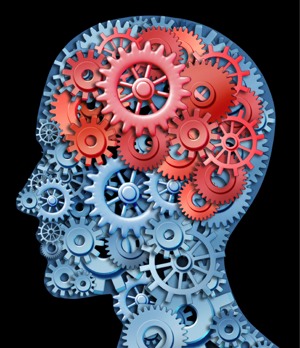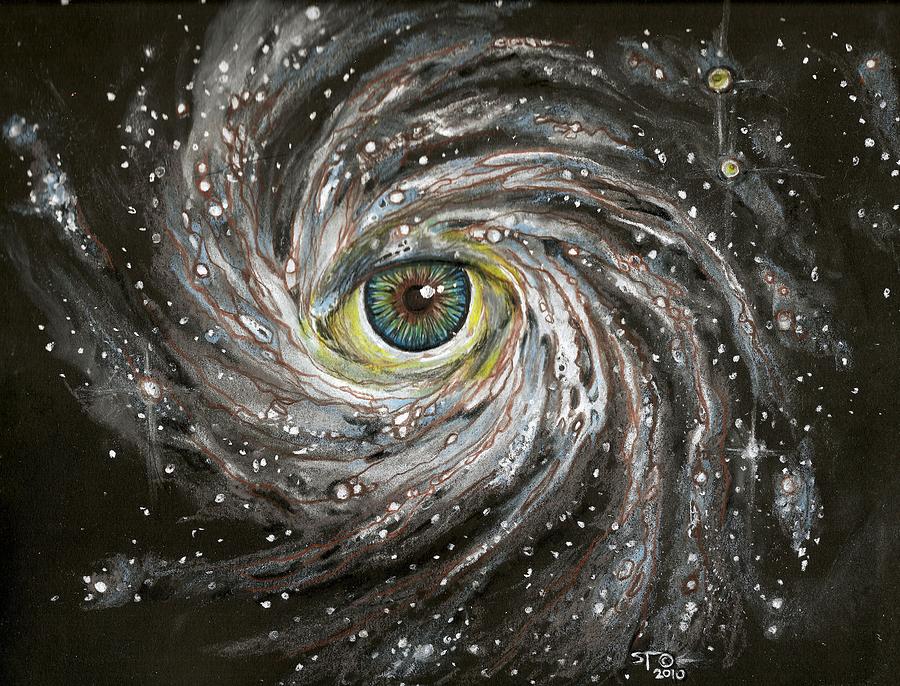Of Consciousness
Thomas Metzinger
- Thomas Metzinger spent years of study of
the philosophy of consciousness and
the models of self.
Susan Blackmore asks him what such studies
have done "to your ordinary everyday life."
He responds:
It is deeply mixed up with my own life, and in particular I think I'm paying a price for doing this kind of research. For example, I often study neuropsychological syndromes, people who have severe brain lesions, or people who have gone mad, and I analyse these states as a philosopher --- but of course you also always try to understand how it really feels like to be such a patient, and if you really do that it hurts, and it makes you become aware of the fact that any time --- when you're walking across the street --- some little thing might happen in your brain to completely deprive you of your dignity for the rest of your life, and turn you into one big suffering confused mess. We are very fragile beings.I also don't think that in general an academic career or an academic life is something that makes you particularly happy or is conducive, say, to meditative states. You have a lot of hypocrisy and competition, hard egos, and particularly clever and ambitious examples of the human species. It's not such a beautiful, social environment to live your life in --- but it is, of course, very exciting to follow the old philosophical ideal of self-knowledge and to be ready and have the guts to really face the facts, and to make use of the enormous new tools we have in cognitive neuroscience right now. But what I think many people, including many professional philosophers, don't understand is that nobody ever said self-knowledge is emotionally attractive, or that it cannot also have sobering or outright depressing effects on you.
There are hard theoretical issues, which you can only talk about with philosophers and scientists, but there are also what I call 'soft issues' and these soft issues have been making me more and more concerned recently, because I think something is coming towards us as mankind, and it's coming very fast, and we are not prepared for it.
Let me give some examples. There is a new image of man emerging out of genetics and neuroscience, one which will basically contradict all other images of man that we have had in the Western tradition. It is strictly unmetaphysical; it is absolutely incompatible with the Christian image of man; and it may force us to confront our mortality in a much more direct way than we have ever before in our history. It may close the door on certain hopes people have had, not only scientists and philosophers but all of us, such as that maybe somehow consciousness could exist without the brain after death. People will still want to believe something like that.
But just as people will actually still think that the sun revolves around the earth --- people whom you basically laugh at and don't take seriously any more. So there's a reductive anthropology that may come to us, and it may come faster than we are prepared for it; it may come as an emotionally sobering experience to many people particularly in developing countries, who make up 80% of human beings, and still have a metaphysical image of man, haven't ever heard anything about neuroscience, don't want to hear anything about neural correlates of consciousness, want to keep on living in their metaphysical world-view as they have for centuries.
Now here we come in these rich, decadent, non-believer Western countries, and we suddenly have theories which work very well in medicine and in treating psychiatric disorders, and which say 'There is no such thing as a soul,' and 'You are basically a gene-copying device,' and it is not clear what that will do to us. A chasm will open between the rich, educated, and secularized parts of mankind on the planet and those who for whatever reason have chosen to live their lives outside the scientific view of the world, and outside the scientific image of man.Our image of ourselves is changing very fast, but there's a problem associated with it: that image, in a very subtle way, influences the way we all treat each other in everyday life. One question is, for instance, whether a demystification of the human mind can take place without a desolidarization in society. What has held our societies together and has helped us to behave have been metaphysical beliefs in God or psychoanalysis and other substitute religions like that.
The question is, can science offer anything like that to keep mass societies coherent after all these metaphysical ideas have vanished, not only in professional philosophers and scientists, but in ordinary people as well? If everybody stopped believing in a soul, what effect would that actually have in the way we treat each other?
All this may have cultural consequences which are very hard to assess presently; it may have a broad effect on the way we view each other, and it is very important that a crude, vulgar kind of materialism is not what actually follows on the heels of this neuroscientific revolution. For this, transported through the media, makes people believe in simplistic ideas such as that human beings are just machines, and that the concept of dignity is empty, and there never has been such a thing as reason, or responsibility.
Then there is another class of soft issues: what do we do with our new image of ourselves; are we ready to face the facts? Another set is what I call 'consciousness culture:' what is the impact of all this on ordinary everyday life for all of us? And the third is what I call 'consciousness ethics:' as soon as we know more about the brain and the neural correlates of consciousness, we will at least in principle be able to selectively switch conscious experiences on and off with new molecules, or by using direct transcranial magnetic stimulation, to create new media environments in the global data-cloud, new forms of electronic entertainment that we have never dreamt of --- cyberspace worlds, holographic cinema, etc.
And then there is all this info-smog and increasing speed in the business world, which is already too much for many of us today.We all realize, now that the Internet is humming all around us that in one way it's a blessing and it helps us, and that in another way it enslaves us.
To give you an example, I recently became aware that I was in a dream, and I realized that by the fact that the transition from one dream scene to the other looked exactly like the way I click from one website to another. So, working with all these computers and new technologies does something to the brain itself.
And another thing, drugs: we're going to have terrific biological psychiatry, terrific medicines, in 50-100 years' time, to get rid of things that have plagued mankind for millennia. On the other hand we will also probably have recreational drugs that mankind has never dreamt of.
So if, for instance, we could have something that is non-addictive and has no major side-effects and puts a nice smile and a sexy flirt on to our faces, and you can take it for three decades And if your doctor says, 'What you have is only a common sub-clinical deep depression; you're not getting this,' people will say 'I am a free citizen. This is my brain. Why does the medical profession have the right to tell me how I am going to design my conscious life?'
I want to be an autonomous person in that open future society Making these things illegal will not help because wherever there is a market there will be an illegal industry which serves that market. So the times where we were wondering about the neurotoxicity of Ecstasy and things like that may actually look like an Easter Sunday walk to us in ten or 100 years when children and adolescents are coming to psychiatric emergency wards under the influence of substances the doctors never heard of when they studied medicine at the university, because everything is flooded with ever newer molecules and more and more efficient ways of changing consciousness. The old strategy --- laws, disinformation, and repression --- will not do in such a situation: either we find a sane way to use all these new tools in a mature and intelligent way or we will be in big trouble.
Sue: Are you optimistic about the future yourself?
Thomas: Personally, I tend to be rather pessimistic about the future, but I always remind myself that of all those super-well-paid sociologists and political scientists in all the universities around the world, not one of them predicted that the Berlin Wall was going to come down, and everyone of them could have made a big career and become very famous by predicting that. So I think that human history is basically open and none of us really knows what's going to happen next.
--- Interview with Thomas Metzinger in
Conversations on Consciousness
Susan Blackmore
©2006, Oxford University Press

